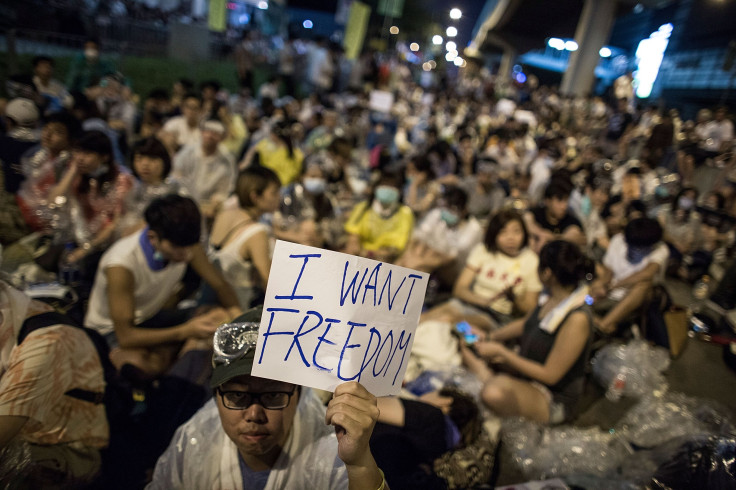US Congress Tables Bill Seeking To Monitor Democratic Progress In Hong Kong

HONG KONG -- A bipartisan bill was tabled in the U.S. Congress Thursday, seeking to monitor the development of democracy and political rights in Hong Kong under a 1992 law, according to reports.
The Hong Kong Human Rights and Democracy Bill was submitted to both the House of Representatives and the Senate, and called for the revival of annual reports by the U.S. government to Congress on political developments in Hong Kong, according to Radio Free Asia.
“Hong Kong’s autonomy and freedoms -- essential to its relations with the US -- are under threat from China,” said Senator Sherrod Brown, a Democrat and co-chairman of the commission, according to a report from the South China Morning Post. “At this critical time, we must strongly support the universal rights of the people of Hong Kong, including free and fair elections in 2017 and beyond.
“Our bipartisan bill would ensure that the United States can continue to monitor Hong Kong while ensuring that its democracy and freedoms remain a cornerstone of US policy.”
Under the proposed bill, the state department would be required to reinstate and strengthen an annual report to Congress on the situation in Hong Kong, according to the Journal of Turkish Weekly.
The legislation would also "require the [U.S.] President to certify that Hong Kong is sufficiently autonomous before enacting any new laws or agreements affording Hong Kong different treatment from the People's Republic of China."
The committee's move comes as relations between the U.S. and China appear to have at least partially thawed, with the announcement earlier this week of a historic deal between the two countries to limit greenhouse gas emissions and tackle climate change.
China has repeatedly expressed concern that the pro-democracy protests in Hong Kong are the result of “foreign interference,” a claim Chinese President Xi Jinping repeated at the APEC summit this week. President Barack Obama specifically denied such assertions at the same summit this week.
“Our primary message has been to make sure that violence is avoided as the people of Hong Kong try to sort through what the next phase is of their relationship to the mainland,” Obama said in response to reporters' questions at the U.S. embassy in Beijing, according to Politico.
Lawmakers in Hong Kong have told the International Business Times, before and during the outbreak of pro-democracy protests in Hong Kong, that China is deeply concerned at the prospect of allowing the city's chief executive to be elected without political vetting from Beijing. According to highly placed sources in the city's political structure, China's Communist Party government considers fully democratic elections as an invitation to the U.S. or U.K. to influence the city's political development.
Concern about foreign influence is widespread in China. Many Chinese online commenters, some of whom are suspected to be employed by Chinese government agencies, cite the nineteenth-century Opium Wars between the U.K. and China as a reason for their distrust of Western countries.
China's state-run People's Daily newspaper published an editorial in October, which stated: “Of course, the US will not admit it is manipulating 'Occupy Central', just as they will not admit it is controlling other anti-Chinese forces. They will legitimize their moves under the values of 'democracy, freedom and human rights',” according to the SCMP.
In October, U.S. politicians and administration officials called on Washington to become more vocal in its support of pro-democracy forces in Hong Kong, describing local democracy aspirations as an increasingly important human rights issue, according to the Wall Street Journal.
Pro-democracy protesters in Hong Kong have occupied sites around the city for six weeks, and are now facing the prospect of eviction, after a local court ruling decreed that bailiffs and police could take action to clear protesters and their barricades from the streets.
© Copyright IBTimes 2024. All rights reserved.






















